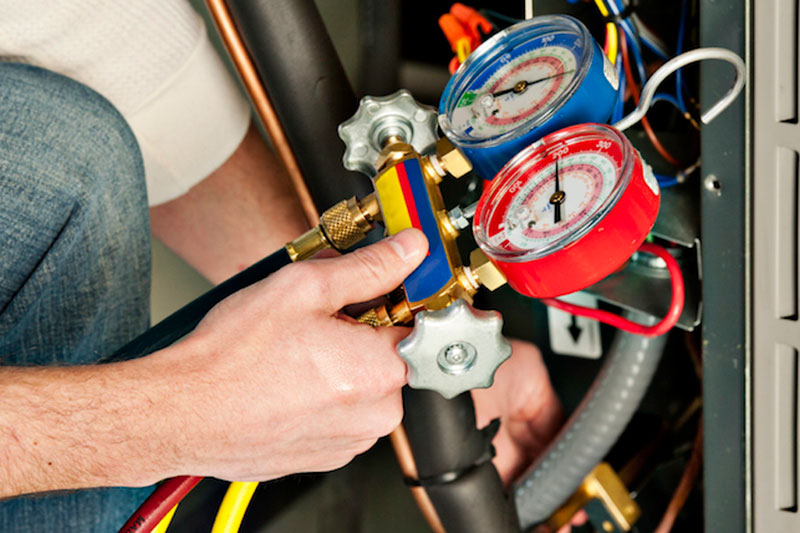
You might not think much about how your air conditioner works, but it requires refrigerant to keep your home fresh. This refrigerant is bound by environmental regulation, as it contains chemicals.
Based on when your air conditioner was put in, it may need R-22, R-410A or R-32 refrigerant. We’ll discuss the differences and which air conditioner refrigerants are being phased out in Chelan and Wenatchee, in addition to how these phaseouts impact you.
What’s R-22 and Why Is It Phased Out?
If your air conditioner was installed before 2010, it probably uses Freon®. You can find out if your air conditioner contains it by calling us at 509-284-4265. You can also inspect the name plate on your air conditioner condenser, which is found outside your home. This sticker will contain info on what type of refrigerant your AC needs.
Freon, which is also called R-22, has chlorine. Scientists consider this chemical to be harmful to the earth’s ozone layer and one that prompts global warming. The Environmental Protection Agency, which controls refrigerants in the United States, barred its production and import in January 2020.
Should I Replace My R-22 Air Conditioner?
It depends. If your air conditioning is cooling fine, you can continue to keep it. With yearly air conditioner maintenance, you can expect your AC to run around 15–20 years. However, the Department of Energy says that replacing a 10-year-old air conditioner could save you 20–40% on annual cooling bills!
If you don’t install a new air conditioner, it may lead to a problem if you have to have air conditioning repair later on, specifically for refrigerant. Repairs might be higher-priced, since only small amounts of recycled and reclaimed R-22 is accessible.
With the end of R-22, most new air conditioners now have Puron®. Also known as R-410A, this refrigerant was made to keep the ozone layer healthy. Because it requires a varying pressure level, it isn’t compatible with air conditioners that rely on R-22 for cooling.
However, Puron still has the potential to lead to global warming. As a result, it could also ultimately be ended. Although it hasn’t been communicated yet for residential air conditioners, it’s expected sometime this decade.
What Refrigerant Will Take Over R-410A?
In preparation of the discontinuation, some manufacturers have begun using R-32 in new air conditioners. This refrigerant ranks low for global warming likelihood—around one-third less than R-410A. And it also lowers energy use by about 10%, according to the Intergovernmental Panel on Climate Change’s Fourth Assessment Report. That’s savings that might be forwarded on to you through your utility bills.
Lakeside Heating & Air Can Help with All Your Air Conditioning Needs
In short, the alterations to air conditioner refrigerant probably won’t concern you very much until you have to have repairs. But as we discussed previously, refrigerant repairs can be more costly since there are the reduced levels available.
Aside from that, your air conditioner frequently malfunctions at the worst time, typically on the warmest day when we’re getting lots of other appointments for AC repair.
If your air conditioner relies on a phased out refrigerant or is more than 15 years old, we suggest getting an up-to-date, energy-efficient air conditioner. This ensures a stress-free summer and might even reduce your cooling costs, especially if you get an ENERGY STAR®-rated air conditioner. Plus, Lakeside Heating & Air offers many financing options to make your new air conditioner fit your budget. Contact us at 509-284-4265 to begin right away with a free estimate.



